Share
In this series of six whiteboard animation videos to be published online in 2018, Rabbi Sacks takes a look at some of the key challenges facing our global society today. Each seeks to use some of key ideas contained in much of Rabbi Sacks writings over the past 30 years, but present these ideas in a dynamic and engaging way. Learn more about the series in Whiteboard Animations.
In this first video, based on his book called ‘The Politics of Hope’ published in 1997, Rabbi Sacks analyses the rise in the ‘politics of anger’ in the West today and explores whether it might be possible to create a different kind of politics: the ‘politics of hope’.
Future videos will focus on: the dignity of difference, integrated diversity, the relationship between religion and science, understanding and confronting religious violence, and the ethics of responsibility.
Please note that this video contains subtitles in: Chinese, English, French, German, Hebrew, Italian, Portuguese, Russian and Spanish (please click on the 'Settings' button on the video-player to select your preferred language).
Rabbi Sacks said:
“Too often in recent years, the West has been preoccupied with the idea of power as opposed to the power of ideas. Throughout my life, I have been excited and inspired by ideas, and this is a challenge I have set myself and my team: how can we continue to present ideas – whether they are particular to Jews and Judaism or more universalistic in their appeal – in the most engaging and appealing ways. The whiteboard animation technique is one we have found to be a wonderful way of presenting concepts and ideas, particularly in an age of social media. I hope that this series will highlight some of the ideas I have thought most deeply about over the past 30 years, and present them to a new and younger generation in a dynamic and inspiring way.”
In recent years societies in Europe and America have become far more divided. The gap between left and right has become deeper. There’s been a rise in populist parties of the far right and far left. The extremes are growing and the centre ground is being abandoned. This is the politics of anger. Why has it happened and can we create a different kind of politics: the politics of hope?
The starting point has to be the fact that for the past fifty years societies in the West have been dominated by two institutions, the state and the market – politics and economics, the logic of power and the logic of wealth. The state is us in our collective capacity. The market is us as individuals. And the great debate has been about which is more effective in creating a better future. The left tends to favour the state. The right tends to favour the market.
But what if this entire way of thinking leaves out something essential? We can see this by asking some simple questions. Suppose there’s an organisation in which you have total power. One day you decide to share it with nine others. How much power do you have left? One-tenth of what you began with.
Now suppose you have £1,000 and you decide to share that with nine other people. How much do you have left? A tenth of what you had before.
That’s because in the short term, power and wealth are zero sum games. If I win, you lose. If you win, I lose. In zero sum games, the more we share, the less we have. That’s why politics and economics, the state and the market, are arenas of competition.
But now suppose you decide to share with nine others not power or wealth but love, or friendship, or influence. How much do you have left? Not less. You have more; perhaps even ten times more. That’s because love, friendship and influence are social goods, and social goods are non-zero-sum games. If I win, you also win. With social goods, the more we share, the more we have. That’s because social goods are not about competition. They’re about co-operation.
We find social goods, not in the state or the market but in families, communities, neighbourhoods, voluntary groups and the like. And they’re essential to any human group because we are social animals, and what gives us our strength is our ability to co-operate as well as compete. A world with competition but no co-operation would be lonely, nasty, and fraught with conflict.
To understand the difference between these two kinds of interaction, we need to make a distinction between two ideas that sound similar but are actually not, namely a contract and a covenant.
In a contract, two or more individuals, each pursuing their own interest, come together to make an exchange for mutual benefit. So, for instance, when I buy something from you, you give me the item or the service I want, and in exchange I pay you. That’s a commercial contract, and that’s what makes the market economy.
Or, I pay taxes in return for the services provided by the government. That’s the social contract, and it creates the state.
But a covenant is different. The simplest example of a covenant is a marriage. Two people, each respecting the dignity and integrity of the other, come together in a bond of loyalty and trust, to share their lives, by pledging their faithfulness to one another to do together what neither can achieve alone.
A contract is about interests, but a covenant is about identity. It’s about you and me coming together to form an “us”.
The difference is huge. The social contract creates a state. But the social covenant creates a society. A society is about all the things that bind us together as a collective group bound to the common good, without transactions of wealth or power. In a society we help our neighbours not because they pay us to, or because the state forces us to, but simply because they’re part of the collective “us”.
We can now see why politics in the West have become more divided, abrasive and extreme. For at least a half century we’ve focused on the market and the state while ignoring the third dimension called “society.” We’ve focused on contracts while ignoring covenants. Our sense of competition is strong; but our bonds of co-operation have grown weak, as families and communities have fractured.
This can work for a while, during times of economic growth and peace, when most people feel that life is getting better for them and their children. But when they feel that life is getting tougher for them and their children, it all begins to go wrong. People see around them the zero-sum games of the market and the state. A few gain, many lose, and everything is about competition and self interest. That’s when you get the politics of anger.
The only real antidote is to renew the social covenant that says, we are bound by bonds that go deeper than self interest. We share an identity and a fate and we are collectively responsible for the common good. We need to remember that societies are strong when they care for the weak. They are rich when they care for the poor. And they are invulnerable when they care for the vulnerable. When we restore the social covenant, we defeat the politics of anger and re-create the politics of hope.
DOWNLOAD POSTERS
More Animations
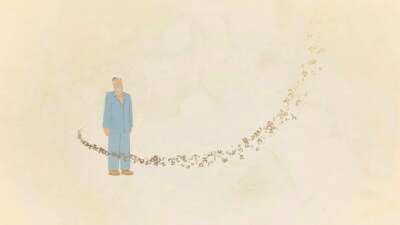
The Bridge Across Time (Animation)
Watch Rabbi Sacks’ message on Torah, and how it lives in every generation

The Everlasting Flame (Yom Ha'atzmaut animation)
Watch Rabbi Sacks’ message on the true courage of Israel
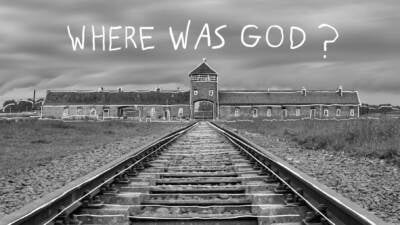
Faith After the Holocaust
Rabbi Sacks responds to the devastation of the Holocaust
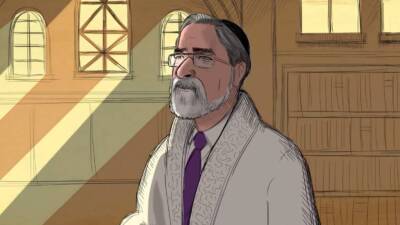
Time (animated video)
Watch Rabbi Sacks’ view on the Jewish way to understand time.
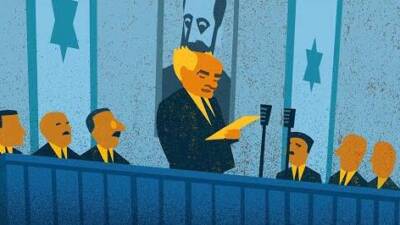
Israel: Home of Hope (animated video)
Rabbi Sacks on the connection between Ezekiel’s Vision of the Valley of Dry Bones and the creation of the modern State of Israel.
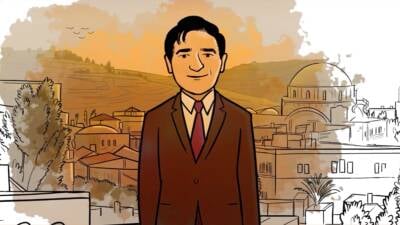
Connecting to God (animated video)
With audio recorded by Rabbi Sacks in 2010, here is a new animated video of the three key ways we can each connect to God.
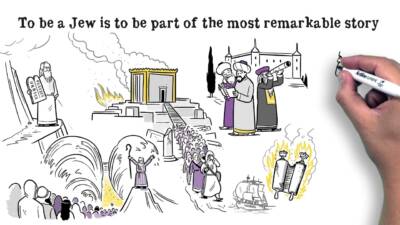
Being Jewish (animated video)
An animation on understanding our identity and our Jewish heritage.

Morality (animated video)
“We need to restore that sense of collective responsibility…”
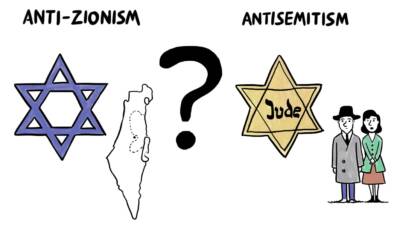
The Connection between Judaism and Israel
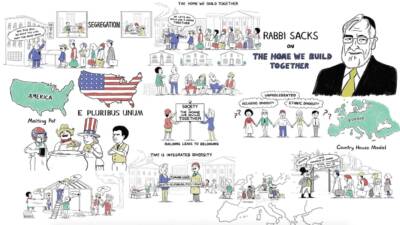
The Home We Build Together (animated video)
How can we create a healthy, sustainable society? Does building lead to belonging?

Rabbi Sacks on 'The Great Partnership'
Do Religion and Science Always Contradict Each Other?
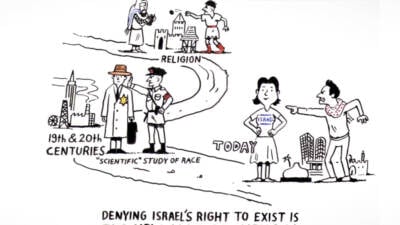
The Mutation of Antisemitism
What is antisemitism, and how has it changed over the centuries?
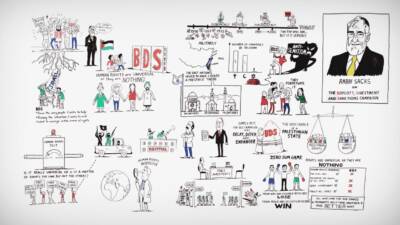
On the Boycott, Divestment and Sanctions (BDS) campaign
Why is it important to understand and oppose the BDS campaign?
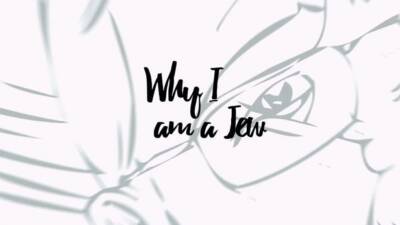
Why I am a Jew
An animated video on Jewish identity and finding your Jewish purpose


